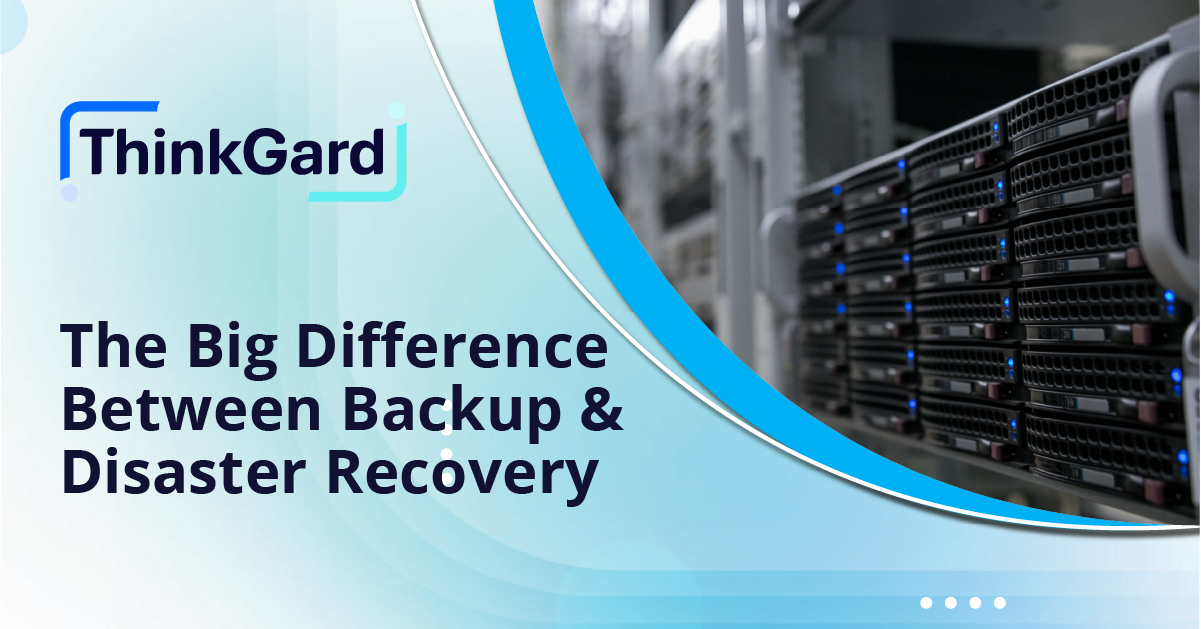Often times, companies who we engage mistakenly believe that their daily backup activities have them covered in the event of an outage or disaster. I’ve heard many CIO’s, IT managers and directors that say “Our data is backed up each night and sent off site and we’re quite happy with our system, so we’re all set!” Then I ask myself “Is that their entire plan. How do they sleep at night?”
Perhaps they believe that data backup and disaster recovery are one in the same. This cannot be further from the truth so when we speak with our clients about the differences between backup and disaster recovery, we’d be doing an injustice to them if we didn’t first make it a point to fully understand their business as a whole before proposing a plan or having them purchase our services. If we don’t understand their business processes and how critical their data is to their revenue stream or perhaps the survival of the company, we couldn’t begin to develop a strong solution that meets their data retention objective as well as how much downtime they could experience before losing their shirt. Below you will notice many reasons stating the differences between backup and disaster recovery.
Backup software can fail. There are many software vendors out there that state they have the best backup software and can recover all of your data no matter what. That’s probably a truthful statement that assumes the user doesn’t buy the software, configure it and simply walk away until it’s time to review the daily or weekly status reports. The main reasons I have issues with relying only on the software is if the user forgot to select a drive or added new data that the software wasn’t configured to backup. Now fast forward a month or two down the road to a server crash. Now why is this a problem? Well, the new data they were saving was never backed up causing them to only have the data from 2 months ago thus losing very critical information. And as we all know, it’s a possibility that losing that data could bankrupt even their company. If only they had a testing phase to find those problems every day.
Backup is the main concern not recovery. One of our customers has an IT department who previously handled their backups internally. They have multiple servers that they backed up daily to tape and to disk (double protection, right?). From their perspective, the backups had to happen very fast as to not slow down their systems so they really didn’t pay attention to their recovery method. Eventually, they had an issue where they needed to recover lost data. They then looked over their tapes and drives and realized that the data they needed to recover wasn’t on any of them. In the end, they suffered downtime, loss of productivity, loss of trust from some of their best customers and, in the end they lost revenue. It took what at first looked like a minor issue for them to realize that their IT department lacked both the time & expertise to manage and monitor something that needed constant attention. They waited until it was too late to make a decision to bring in a third party firm that had all the processes in place to ensure that they could recover files when needed.
It starts with Data Backup but doesn’t end there. Backing up your data is a great first step and indicates you have an understanding that it has to be done but, backing up the data isn’t enough. There are other considerations that need to be made to ensure a recovery plan complete. Such as having an offsite backup of your data, a documented recovery plan and scheduled, consistent testing to name a few. The offsite recovery system must be capable of running your business if your data center is no longer accessible. This requires more than just syncing your data to another data center or taking it home every night. In order to make all of this work you need the right people, processes and tools to recover your data and continue to access it. It’s not always an easy step as you’ll need people that not only understand servers and IT infrastructure but they’ll need to understand the actual business to determine an approach to keep things “ business as usual” in the event of a disaster.
Friends, if you only take away one nugget of information from this blog, it is to know that data backup and disaster recovery are not the same, but are very important for long-term business technology resiliency.




